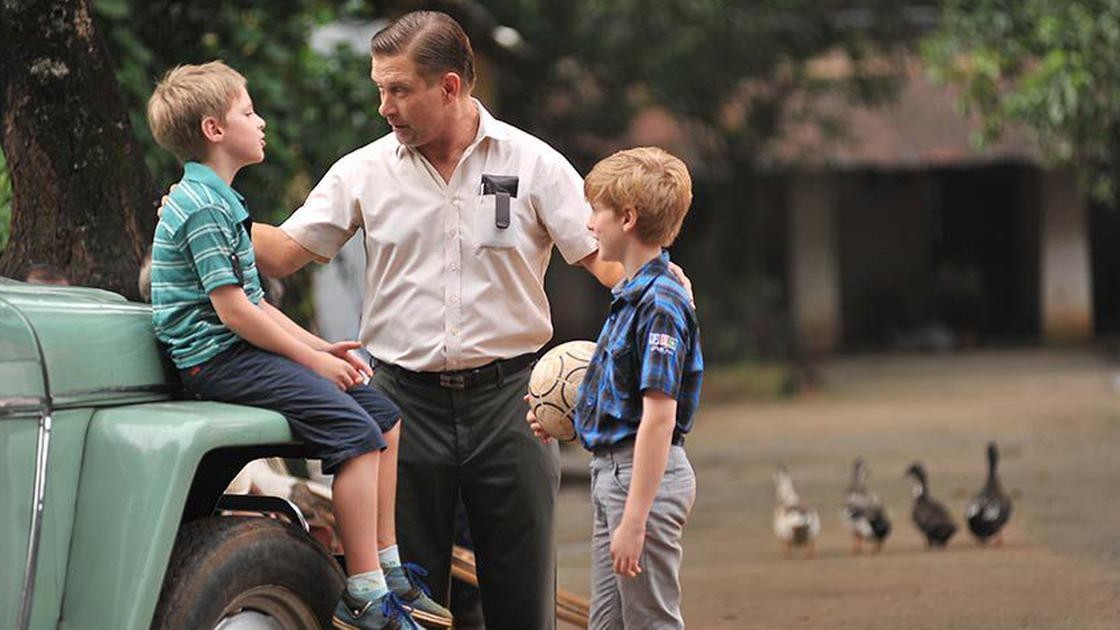
Susan Narjala
Keeping it Real

Beauty From Ashes
I remember seeing the grainy newspaper picture of a charred station wagon.
It was 1999 and I was doing my undergraduate degree. The picture was so startling, the story behind it so horrifying, that it sliced right through my usually-frivolous preoccupations to sear itself on my heart.
The incident prompted the most hardened person to cry out, “Even the kids?”
Yes, even the kids.
Yes, the two little blond boys were trapped inside the burning vehicle when it was set alight. When they found the bodies, their dad’s arms were said to have been tightly wrapped around each of his sons.
I’m still reeling from having watched The Least of These earlier today. Based on the life of Australian missionary Graham Staines, the movie was beautiful and poignant and thought provoking.
And gut wrenching.
On January 23rd 1999, Staines and his two young sons were at a jungle camp in Orissa, India, when a mob of extremists set fire to the car in which they were sleeping.
Staines left behind his wife, Gladys, and teenage daughter, Esther.
In the months following the murders of Graham Staines and his sons, the world watched as Gladys chose to forgive the criminals who stole her two little boys and her husband from her.
The just-released movie won’t be a box office hit. It won’t win big name awards. It won’t sell themed merchandise in department stores.
But it’s an important film that showed me something I wasn’t quite expecting. It showed me that “missionaries” are regular people who are simply willing to be used by God to do extraordinary things.
Graham Staines wasn’t only a missionary. He was a husband who shared his anxieties with his wife. He was a dad who rough-housed with his boys and taught them to ride bikes. He was a guy who tinkered with his car and ran a business and worked with his hands. He was an ordinary man – who lived in an extraordinarily selfless way, serving India’s lepers for 35 years.
The two little boys – Philip and Timothy – weren’t only the children who were burned alive. They were energetic boys who loved cricket and enjoyed camping outdoors. They were little boys who loved their mom’s hugs and their dad reading to them. They didn’t think themselves any different from the village kids or even the kids with leprosy. They were ordinary boys – and, without even planning to, they lived with extraordinary acceptance.
Gladys isn’t just the bereaved woman who forgave. She is as a strong woman who crumbled under the heartache of loss. She is an industrious woman who worked alongside her husband in one of India’s harshest, most unforgiving areas. She is a woman of little outward adornment but who chose to wear the beauty of a gentle and quiet spirit. She is an ordinary woman – but she lives with extraordinary grace.
The newspaper stories only covered one aspect of their lives. The TV sound bites dwelt on a single angle alone. But, the Staines weren’t “characters” in some horrific drama that unfolded. They weren’t saints or super humans. They were real people who loved and laughed and struggled and persevered.
And that’s why they are examples to us.
They are today’s heroes – because they allowed God to use their ordinariness for the good of others and the glory of the Father.
We owe it to the Staines family to never forget.


Comments
One Comment
Prem Kumar S R
A foreigner served India’s leprosy patients for 35 years with his family & got burnt alive with his sons because his view of God is different than some folks’ view of God.
His wife forgave the murderers as she received the overflowing love of Christ demonstrating the abundant mercy of father’s heart.
Thus, they served God’s purpose for their lives.
“Cast our bread upon the waters, for we will find it after many days. Give a portion to seven, or even to eight, for we know not what disaster may happen on earth. If the clouds are full of rain, they empty themselves on the earth, and if a tree falls to the south or to the north, in the place where the tree falls, there it will lie. He who observes the wind will not sow, and he who regards the clouds will not reap. As we do not know the way the spirit comes to the bones in the womb of a woman with child, so we do not know the work of God who makes everything. Ecc 11:1-5